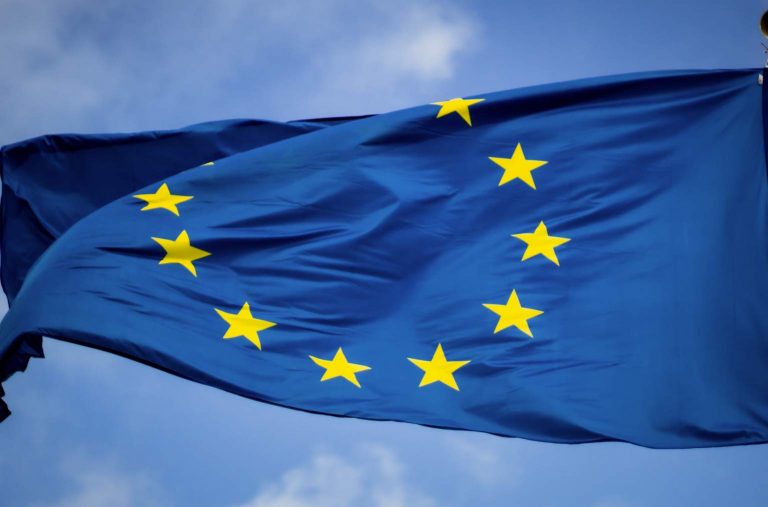
Morning Brief – Thursday 25th
Get ya free money; get ya free money. It’s ECB decision day and with a 10 basis point cut already priced into markets, pressure is on the ECB either to take policy action immediately or set the path towards a September rate cut. Just one week ahead of the Federal Reserve in the United States, the European monetary authority will be seen as a qualification of whether global equity, bond, and foreign exchange markets have been correct this year in pricing in a looser global monetary policy.
European interest rates right now see the main refinancing rate at 0% and the Deposit facility at -0.4%. Great, what does that mean? Well, if a bank has to take out cash from the central bank for a duration of one week it has to pay an interest rate of 0%: it pays back what it borrowed one week earlier. If a bank has too much cash it doesn’t want to hold onto it can give it to the central bank at an interest rate of -0.4%. Yep, it gets back less money following the repayment of the deposit to the central bank than it initially put in! You’ll probably notice two things from these numbers: 1) yes the central banking authority makes money on this quasi-market making activity! And 2) yes, a cut in rates means that any bank can make money simply by borrowing it from the central bank..! Rest assured that a cut in the main refinancing rate is unlikely to trickle down to consumers and businesses: banks are highly unlikely to pay people to borrow money from it!
Now the economic problem with negative rates is twofold. The immediate issue is a moral dilemma: why would banks lend to consumers and businesses and take the risk of non-repayment when it can just borrow money from an institution with infinitely deep pockets and make money that way? Well, the concern is it probably wouldn’t, so, even though money should get even cheaper and by consequence access to money and finance even wider, it can have the opposite effect. You can lead a horse to water but you can’t make it drink; you can lead a bank to cheap money but you can’t make it lend.
The second issue relates to bubbles. The world already has an outstanding debt pile of $250tn. Sure, that’s just a big number so what does it mean? Well it’s equal to just over $34k a person and aggregated it’s 320% of global output per year – the world owes itself 3.2 times what it produces in a single year. To level debt to zero the world would have to produce everything that it did last year 3.2 times without a single drop of consumption or investment by a single entity; how do you solve a problem like Maria(o) Draghi?! I haven’t got a clue but probably not with Christine Lagarde, who waits on the benches for his position.
Cheap money risks creating bubbles which in turn can create huge issues. Sure it’s not the most popular argument but one that the Federal Reserve Chairman Jay Powell himself favours runs a little something like this: bubbles cause recessions. The 2000 recession he believes was a market and consumer reaction to the tech bubble; the 2007/8 recession a reaction to a house price bubble. Cutting rates so low risks perpetuating the existence of unproductive businesses which should be strangled by the natural selection of capitalism. So we end up with overvalued rubbish in markets that are themselves then a bubble. Weaker monetary policy that could either come as a result of today’s decision or the path determined by today’s announcement could therefore create and worsen the next European/Eurozone recession.
Should foreign exchange markets care today? Absolutely. When the European Sovereign Debt Crisis arose in 2010 (read bubble here) the talk was of contagion and secession: Greece was talking about getting out, Italy’s membership commitment wobbled, and Spain was fed up of the whole thing so the Euro suffered. Creating an even harder recession will bring these thoughts back and then it’s bye bye Euro. But this time, unlike in 2010, rates are already zero, money is already free and the balance sheet of the ECB as a result of its quantitative easing program is already around €2tn (6 grand a head for Eurozone citizens). This time, if a recession strikes, we can’t just do whatever it takes all over again, we’ve done that. It’ll be bondmageddon, frankly with the social, economic and political problems it could create it’ll be Armageddon. So, a willingness to go for negative rates should and will be read as a weaker Euro today.
Discussion and Analysis by Charles Porter

Click Here to Subscribe to the SGM-FX Newsletter
Related Insights

Daily Brief – Sterling
Sterling No sooner had the financial press written that Sterling was on the skids due to the Chancellor being on the way out, than PM Starmer woke up to the need for some TLC for his beleaguered Chancellor and executed a handbrake turn to administer some gruesome bedside cheer to the apparently on life support […]

Daily Brief – EU Inflation
EU Inflation With the ECB annual symposium meeting in sunny Sintra, Portugal, inflation is very much on President Lagarde’s mind ; that is because it is showing signs of rising with the monthly inflation rate showing an increase of 0.3% and that presages a break above the target 2% rate just as she and her colleagues […]

Daily Brief – Gold
Gold With Gold accounting for the second highest proportion of Central Bank reserves after the USD and the mood music shifting to it assuming a greater influence on future reserves management, it is worth looking at the numbers behind that. In the 1960s, Central Banks held the highest amount historically of 38,000 tons of gold. […]



 Humphrey Percy
Humphrey Percy